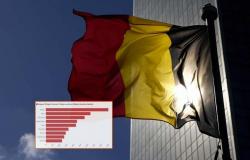As Morocco embarks on its digital transformation, artificial intelligence (AI) is proving to be a major lever for transforming education, entrepreneurship, health and many other sectors. Houda Nait El Barj, Head of Special Research Projects at OpenAI, details how this technology can be a game-changer.
Artificial intelligence (AI) continues to expand its scope of application, disrupting traditional systems around the world. In Morocco, this revolution is all the more relevant as it can respond to major economic, social and environmental issues. Houda Nait El Barj, Head of Special Research Projects at OpenAI, highlights the opportunities that AI offers to Moroccans.
“Today, artificial intelligence comes in several forms, all of which have major benefits for Moroccans. First, in education, AI can compensate for many shortcomings of the current system, in particular by offering personalized monitoring to students,” explains Houda Nait El Barj. In a context where many students must take support courses due to lack of sufficient resources, AI could become a valuable ally. By answering questions, explaining lessons or playing the role of tutor without time limit, she can offer fair and quality support, whatever the social environment.
Read also | A first fundraising for WashMinute, the Moroccan startup specializing in car washing
Entrepreneurship is also one of the great promises of AI. “Today, any entrepreneur can benefit from an AI model that will assist them in their accounting, administrative procedures, market research or even their marketing plans,” she continues. This accessibility to digital tools levels socio-economic differences, allowing everyone to realize their ideas with adapted resources. The ability of AI to offer precise and personalized advice constitutes a unique opportunity to boost Moroccan innovation.
In terms of health, AI could ease the pressure weighing on Moroccan hospitals. AI models are surprisingly effective at making diagnoses, recommending treatments or even predicting epidemics. “They can reduce the duration of consultations and improve access to care, while increasing the accuracy of prognoses,” emphasizes Houda Nait El Barj. In a country where access to quality medical services remains a challenge, AI could transform the public health landscape.
But that’s not all. Agriculture, the pillar of the Moroccan economy, could also benefit from AI. Crop optimization, precise management of irrigation in the face of water shortage, prediction of weather conditions… so many fields where AI can provide concrete solutions. Added to this are public services, which could become more transparent and efficient through automation and data analysis.
Read also | Economic intelligence: Driss Guerraoui awarded in Barcelona
“And to ensure that these advances benefit as many people as possible and do not reinforce inequalities, the government must first ensure widespread access to AI and the Internet. It is up to him to guarantee that all public middle and high school students benefit from free access to AI models, by providing them with a tablet and a stable connection, so as to truly democratize this tool, whatever their social situation. » explains the expert. She adds “It would also be essential to organize introductory courses to help everyone use these models responsibly and effectively. »
The government should also invest in digital infrastructure. “As we expand high-speed internet coverage and ensure that remote areas also have reliable access, it is equally necessary to promote AI culture by launching training programs and workshops that would familiarize citizens with the foundations of this technology and its impact on the future of work,” continues Houda Nait El Barj.
-To support this dynamic, she also recommends supporting SMEs and startups: “It is appropriate to put in place incentives such as tax exemptions, subsidies or the creation of dedicated innovation hubs, in order to encourage small businesses to adopt and develop AI solutions. » However, she insists on the need to regulate this technology: “The government must also regulate this technology in a responsible and ethical manner by developing a solid legal framework on the protection of personal data, algorithmic fairness and the definition of related responsibilities to AI, while taking into account the cultural and social sensitivities of the country.”
Read also | Development and prospects of artificial intelligence in Morocco: what the CESE thinks
Finally, it highlights the importance of regional collaboration: “It appears essential to encourage regional collaboration by establishing or strengthening partnerships with African and Mediterranean countries. This strategy would make it possible to pool best practices and resources, and to promote joint projects in the field of artificial intelligence. »
Houda Nait El Barj concludes by explaining that “Moroccan universities must above all focus on reflection and critical thinking, because in a world where AI can already accomplish a large number of tasks, the added value of humans lies in his ability to think, to question the results proposed by the machine and to improve these proposals thanks to his creativity.
She also recommends a reform of the programs “The courses would benefit from giving more space to the development of critical thinking and creativity, rather than rote learning. University programs should introduce specialized courses in AI, data science and machine learning, while integrating AI modules in broader fields such as business, health, law or humanities. »
To encourage innovation, it encourages interdisciplinarity “Higher education establishments would have every interest in promoting interdisciplinarity by creating collaborative laboratories and student clubs that bring together different disciplines to stimulate innovation at the interface of these varied areas. »
Finally, she insists on partnerships with industry “It would be particularly relevant for universities to partner with industry, whether local or international companies, in order to allow students to work on concrete cases and explore applications of AI adapted to the specific needs of Morocco. »
The future of artificial intelligence in Morocco therefore seems promising. Whether it is improving living conditions or boosting the economy, this technology has the potential to be a real catalyst for change for millions of Moroccans.






